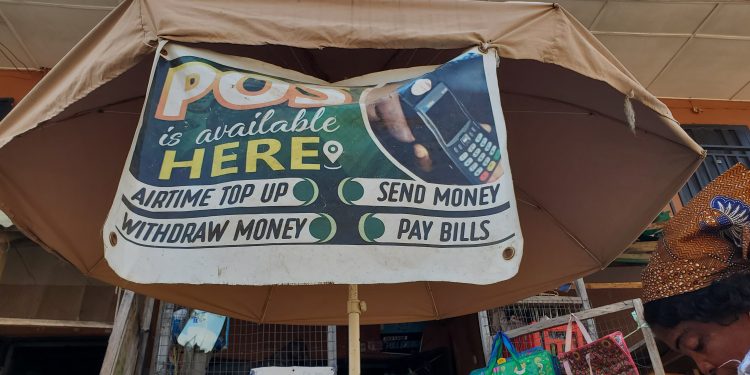The new cash withdrawal limit announced by the Central Bank of Nigeria (CBN), has attracted different reactions from citizens, petty traders, and point of sales attendants, consisting of criticism, commendation, and recommendations.
On Tuesday, December 6, 2022, the CBN had in a letter addressed to banks and other financial institutions announced new limits on cash withdrawals over the counter and via Automated Teller Machines (ATM), Point of Sale (POS) and cheques.
The apex bank set N100,000 and N500,000 as the maximum limits for withdrawal over the counter by individuals and corporates respectively with effect from January 9, 2023.
Reacting to this policy, a petty trader and POS operator along Oke Itunu, Mokola Area of Ibadan, Mrs Bolanle Ajayi, out of frustration said it is high time she stopped operating the POS machine for transactions as it’s becoming more unbearable for her in view of the new policy and bank charges, which according to her, are unfavourable.
Mrs Ajayi who thinks the policy is anti-poor said “the CBN is just trying to frustrate the lower class as it will not be the same for the elite and the higher social class in the country.”
Ajayi acknowledged that the policy if implemented would help to reduce crime rate and illegal financial dealings but suggested that a better approach could have been deployed.
Nurudeen Odusote, a student of the University of Ibadan who started the POS business this year, to make money to support his education lamented that the new policy will definitely reduce the amount he earns on a daily basis.
“As a business owner, I earn a minimum of N2000 daily, depending on the number of transactions. But if the amount that people can withdraw at the POS has reduced, it means I won’t be able to make many gains as expected.
“Also, I’m not sure how to withdraw funds to be able to service my customers. Will I pay 5% withdrawal charges every time I need to withdraw beyond the limit or I won’t be able to service my customers?” Odusote asked.
Also, another POS operator in Ibadan, Mr. Abdullahi Ade, who commenced his POS business in August 2017 said he earns an average of N3000 daily. He noted that the new policy will not affect him personally but will affect Nigerians in its entirety.
Once the policy is implemented, he would have to increase his transaction charges, to be able to meet the demands and charges of the bank.
Nigerians on Twitter are also reacting to the policy, indicating that the Nigerian banking system has not adopted full digital banking systems and it would be difficult to suddenly switch to the cashless policy.
Mrs Zainab Adetola, a Twitter user wondered how government institutions that are cash based would cope with the policy.
“I gave birth in University College Hospital, UCH, and payments were cash-based. Transfer or POS were not acceptable at all. There was a day we paid over 60k in cash,” she said.
An Investigative journalist and founder of West Africa Weekly, David Hundeyin, on Twitter said: “If the CBN actually believed that it could impose cashlessness on Nigeria, the policy would have simply banned cash withdrawals over a certain threshold, or made them subject to an application. Instead all it did was charge individuals 5% and corporates 10 percent to exceed the limit.”
The head of tax and corporate advisory services at PwC, Taiwo Oyedele, said: “It is clear that the CBN is trying to drive a cashless economy by placing stiffer restrictions on cash withdrawals. However, a more effective strategy could have been to enhance the cashless economy infrastructure to remove or significantly reduce the challenges and irritations that people experience when transacting using electronic payments.
“Each of us regularly experiences unsuccessful electronic payment transactions either due to bad network, switch failure, or even lack of electricity to charge the devices.”
Meanwhile, the House of Representatives summoned the Central Bank of Nigeria Governor, Godwin Emefiele, over the new restrictions on cash withdrawals on December 8, 2022. The lawmakers resolved that the CBN should halt the implementation of the policy until the probe is concluded.

